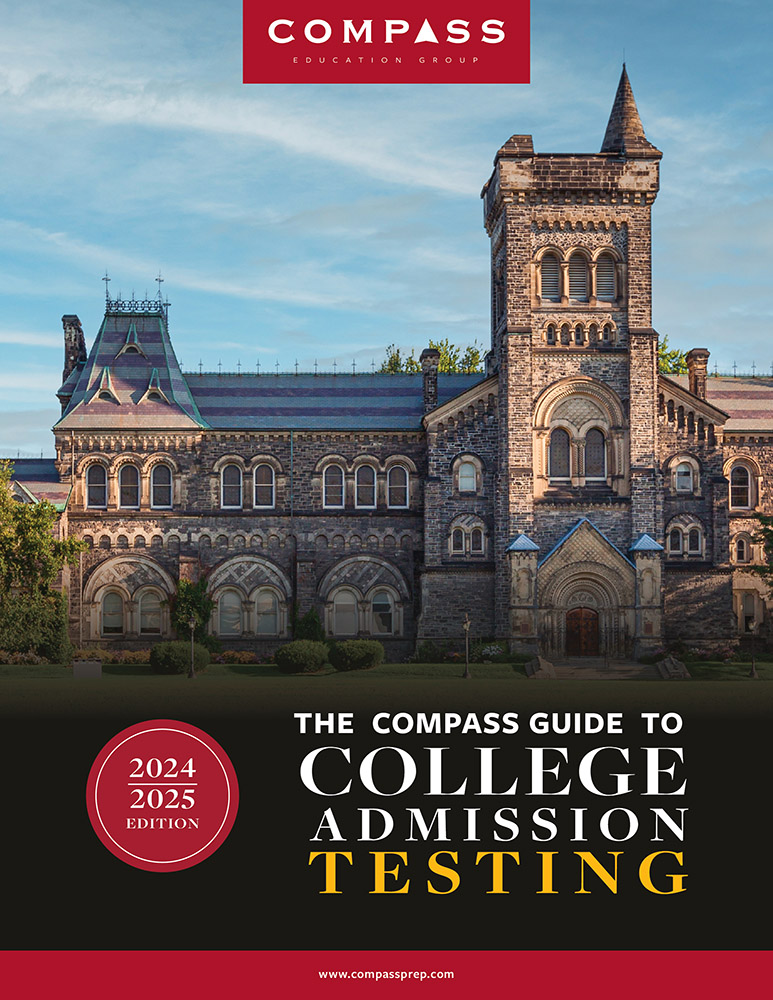
College Board promises that it has rid the SAT of the dreaded “SAT words,” and so books and flashcards filled with obscure vocabulary are no longer necessary study aides. Champions of the new test tout a shift to “words in context,” questions and passages made up of vocabulary students will actually encounter in college.
Given the emphasis on context over vocabulary, you would be forgiven for thinking that studying vocabulary was no longer required to succeed on the SAT. But in truth, memorizing long lists of arcane vocabulary words was never a great strategy for most students. That’s because the vast majority of vocabulary on the SAT did not consist of “SAT words.” What College Board now likes to cite as obscure vocabulary (your picayunes and maledictions) only ever appeared on a handful of questions per test.
Most of the vocabulary on the old SAT was more like this:
Some feminist theorists believe that patriarchy is ______ reality rather than a permanent state.
(a) a transitory
(b) a perpetual
(c) an immutable
(d) an idealistic
(e) an intemperate
One would be hardpressed to argue that “transitory” is too obscure a word for a college-bound student to be expected to know. Indeed, any of these words would be likely candidates for inclusion in a college-level text. And if you spent time learning these words, you would benefit not only by increasing your SAT score, but also by strengthening your general reading comprehension.
I often hear students say that they are bad readers. What this commonly means is that they don’t know some of the keywords in what they’re reading, which makes comprehension a real chore. Ditching arcane word lists is fine, so long as you remember that there is still quite a bit of challenging vocabulary on the redesigned SAT.
Consider the new test’s approach to vocabulary, whereby meaning is dependent upon context and vocabulary is primarily tested within a reading passage:
A woman may seek the aid of co-operation and combination among her own sex, to assist her in her appropriate offices of piety, charity, maternal and domestic duty; but whatever, in any measure, throws a woman into the attitude of a combatant, either for herself or others—whatever binds her in a party conflict—whatever obliges her in any way to exert coercive influences, throws her out of her appropriate sphere. If these general principles are correct, they are entirely opposed to the plan of arraying females in any Abolition movement…
But while woman holds a subordinate relation in society to the other sex, it is not because it was designed that her duties or her influence should be any the less important, or all-pervading. But it was designed that the mode of gaining influence and of exercising power should be altogether different and peculiar.
As it is used in line x, “peculiar” most nearly means
(a) eccentric.
(b) surprising.
(c) distinctive.
(d) infrequent.
Ironically, the answer, (c) distinctive, is easier to see if you take that sentence out of context. Out of the larger context of the passage, it’s a bit more clear that the clue in the sentence is “different” and the test writers are simply looking for its synonym, “distinctive.”
What makes this question a challenge is precisely the difficulty of unpacking the larger context. The excerpt is full of difficult vocabulary set in complex syntax. Many students get lost in the logic of this passage. For some, it would be far easier to follow the logic of a simple sentence completion.
Indeed, treating the last sentence as if it were an old-school sentence completion would help isolate the clue. But instead, many students become overwhelmed by the barrage of information. They then second-guess their understanding and assume that the answer depends on more context than it really does. How relevant is “binds her in party conflict” to her “mode of gaining influence”? Not at all is only clear to the experienced test taker who can spot the clue in the final sentence.
It’s important to remember that College Board did not make the test easier when they made the test anew. Did they get rid of a few obscure words on the hardest problems? Sure. Did they fundamentally change the vocabulary on the test? No.
I pulled out 25 vocabulary words present in the old SAT from January of 2014 and 25 from the new SAT from May of 2016. Which list is which?
“Plenipotentiaries,” “shingled,” and “convoked” in the second list suggest that list was drawn from the old SAT with its obscure words.
It wasn’t.
Granted, the new May 2016 SAT did not contain a question that asks for the definition of plenipotentiaries. But as the above example of “peculiar” demonstrates, the test is designed convince students to select the wrong answer by inundating them with opaque context.
In other words, when you find yourself under timed pressure, not knowing the vocabulary in a passage can eat away at your confidence and ability to derive meaning from context.
And that’s just vocabulary on the reading section! College Board has also made the math sections far more vocab-heavy, as it has shifted emphasis to word problems.
If memorizing obscure words may no longer help you on the SAT, but being comfortable with a wide breadth of vocabulary will dramatically help you understand the “in context,” how should you prepare?
#1 Read! Read! Read!
The best way to improve your vocabulary is to read texts that include words you don’t know. Even better is when that reading is about subjects that interest you because then you’ll stay engaged in the reading. On any given topic, there’s a wide range of writing from the popular to the academic that can help you build your vocabulary.
#2 Ditch the dictionary and grab a thesaurus.
Dictionaries give you precise definitions in uncommonly worded constructions. Have you ever filled out a set of vocab flashcards and written out the exact definitions – only to realize those definitions are harder than the words themselves? Forget that noise. Download a thesaurus app and use one or two synonyms for defining new words.
#3 Write it down.
Our brains remember things best when we learn them in multiple ways. So say the word and its synonym out loud. Use it in a sentence. But also make sure you write it down in the margin or in a notebook. You don’t have to build flashcard sets (unless that helps you), but you should try to collect your words in one place for reference.
#4 Use your words.
The best way to learn a word is to own it and it’s not yours until you use it. But it can be so hard to remember new words when you’re still in the learning phase. This is where your collection comes into play. Keep that list handy and challenge yourself to fit 1-2 new words into each assignment you have in school. Bonus: you might just impress your teachers!
#5 On practice tests only, ignore unknowns.
Take practice tests like you’ll take the real test, which means without a dictionary. Practice looking for easy clues and ignoring the accumulation of hard vocabulary. Chances are good that there will be words on the test that you don’t know, or that you’ve heard before but don’t quite own yet. That’s okay so long as you don’t get bogged down by those words. When in doubt, focus on the words you do know.
#6 Look for secondary meanings.
When the SAT is asking about the meaning of the word, it’s most likely not the most common meaning, but the one that best relates to the tone and main idea of the sentence or paragraph. Look back at the example of “peculiar” above—the most common meaning is “unusual” but its secondary meaning is “belonging exclusively to” or “different.” Focus on the meaning of the context clues, and ignore the intentionally distracting vocabulary scattered throughout the passage.
Despite College Board’s crowing about eliminating “SAT words,” there is still a lot of vocabulary on the SAT. If you think about your test prep as an opportunity to develop your own vocabulary, you’ll find your first year of college that much easier.

